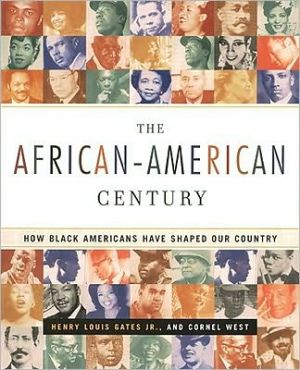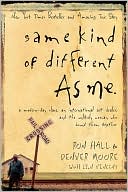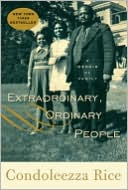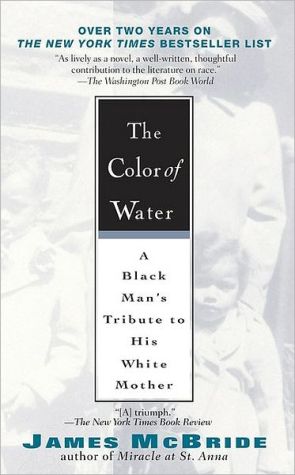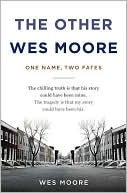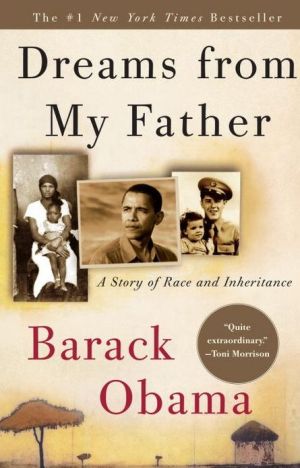The African-American Century: How Black Americans Have Shaped Our Country
ONE HUNDRED ORIGINAL PROFILES OF THE MOST INFLUENTIAL AFRICAN AMERICANS OF THE TWENTIETH CENTURY\ Without Louis Armstrong or Miles Davis, we would not have jazz. Without Toni Morrison or Ralph Ellison, we would miss some of our greatest novels. Without Dr. King or Thurgood Marshall, we would be deprived of political breakthroughs that affirm and strengthen our democracy. Here, two of the leading African-American scholars of our day, Henry Louis Gates, Jr., and Cornel West, show us why the...
Search in google:
Black Americans are at the heart of the greatest achievements of our history, from music to law, from politics to sports, from literature to religion. Now the two leading African-American intellectuals of our day show us why the twentieth century was The African-American Century, with one hundred original profiles of the most influential African Americans from W. E. B. Du Bois to Oprah Winfrey.Henry Louis Gates, Jr., and Cornel West offer their personal picks of the African-American figures who did the most to shape our world. Here we find much-loved figures such as scientist George Washington Carver and civil rights leader Martin Luther King, Jr., and contemporary favorites such as comedian Richard Pryor, novelist Alice Walker, and golf champion Tiger Woods. We also learn about less well known people such as jockey Jimmy Winkfield, aviator Bessie Coleman, and filmmaker Oscar Micheaux, and recognize the achievements of controversial figures such as activist Angela Davis, Nation of Islam leader Louis Farrakhan, and rap artist Tupac Shakur. Each profile is a lively story in its own right. But taken as a whole, these one hundred stories offer a unique window on the history of the twentieth century. Decade by decade, we marvel at the triumphs of a people who began the century only thirty-five years "up from slavery," and ended it at the top of every field. The result is a moving testament to the humanity and genius of black Americans, both individually and together.The African-American Century reminds us that there would be no American culture without black America. Without Louis Armstrong, Miles Davis, or John Coltrane, we would have no jazz. Without Zora NealeHurston, Ralph Ellison, or Toni Morrison, we would miss our greatest novels. Without Joe Louis, Jackie Robinson, or Althea Gibson, we would have none of our most glorious triumphs in sports. Without Thurgood Marshall, Dr. King, or Barbara Jordan, we would be deprived of the political breakthroughs that affirm and strengthen our democracy. Whether we are laughing with Bill Cosby or dancing to rock 'n' roll, whether we are listening to a great preacher or stunned by the power of a Spike Lee film, whether we are building a business empire or fighting for justice -- we are all shaped and influenced by the African-American experience. Written in a lively, accessible style and fully illustrated throughout, The African-American Century is a celebration of black achievement and a tribute to the black struggle for freedom in America that will inspire us for years to come.Essence - Patrick Henry BassHenry Louis Gates, Jr., and Cornel West laud the one hundred people who they believe made the twentieth century the African American century, and they offer insightful and interesting opinions on the genius of Black America in The African American Century
Introduction\ "...Whatever else the true American is, he is also somehow black."\ — Ralph Ellison, "What America Would Be Like Without Blacks" (1970)\ It was the century in which African-American life was transformed — and the century in which African Americans changed America. And yet, when the twentieth century opened, African Americans had been "up from slavery," as Booker T. Washington would put it in his classic autobiography, for only thirtyfive years. Over the long and arduous course of the next hundred years, the achievements of our people would be nothing less than miraculous.\ Remember: In 1900 blacks were systematically barred from full and equal participation in the larger society. No African American could serve in a position of authority over white soldiers, or fight by their sides; no black could participate in professional baseball, the national pastime. The classic blues and jazz had not emerged as the defining forms of American music. Black Americans were routinely lynched with impunity. "Separate but equal" was the institutional law of the South and the de facto law of the land. Racist "Sambo" images of blacks proliferated in advertisements, postcards, games, tea cozies, and a thousand other sources. The future of the race, at the turn of the century, looked rather bleak indeed.\ At the dawn of the twenty-first century, by contrast, we cannot imagine a truly American culture that has not, in profound ways, been shaped by the contributions of African Americans. Who could imagine the American Century without the African-American experience at its core? When we listen to that century, there would be no Louis Armstrong. No Duke Ellington. No Billie Holiday or John Coltrane. In fact there would be no jazz. No blues. No rock and roll. When we read that century, there would be no Ralph Ellison. No James Baldwin. No Toni Morrison. When we think about what democracy means in such a century there would be no W. E. B. Du Bois, no Thurgood Marshall, no Martin Luther King, Jr. When we rent the movies of that century there would be no Bojangles Robinson. No Sidney Poitier. No Spike Lee. When we reminisce about the sports heroes of that century there would be no Jesse Owens. No Jackie Robinson or Althea Gibson. No Muhammad Ali. When we laughed about that century there would be no Bill Cosby. No Richard Pryor.\ Such a century would not seem very American, would it?\ Of course, the most fundamental significance of what is called the American Century was the unprecedented expansion of democratic sensibilities around the world. Nowhere were these sensibilities more apparent than in the extraordinary lives of those African Americans in this book. From American slaves to American citizens (most of whom are descendants of American slaves), these figures enact and embody the core of the democratic faith: the precious notion that ordinary individuals and everyday people possess the capacity to attain the highest levels of excellence and dignity. In this deep philosophic manner, the African-American Century sits at the center of the American Century just as black culture constitutes an essential element of American culture.\ The song known as the "Negro National Anthem," penned by James Weldon Johnson and J. Rosamond Johnson in February 1900, expresses the essential principle of democracy: "Lift Every Voice." The ethical precondition for democracy is to allow every voice of the citizenry to be heard in the basic decisions that shape the destiny of its people. The political prerequisite for democracy is to secure the rights and liberties for every citizen, especially the most vulnerable ones. And the economic requirement for democracy is fair opportunity to every citizen. The African American Century was first and foremost the black struggle for these ethical, political, and economic conditions of democracy in the face of vicious antidemocratic practices. This struggle is one of the great historical dramas of modern times. The people in this book are major agents in this unfinished struggle and incomplete drama.\ We chose these particular persons because they represent the exemplary virtue of the black struggle for respect and liberty — namely, the courage to embody and live their respective truths in the face of overwhelming obstacles, including often the threat to their very lives. This courage was grounded in a profound commitment to enhance and elevate the deplorable plight of African Americans. As we probed into the remarkable lives of these figures we were struck by two recurrent features. First, we noticed the complex interplay of quiet despair and active hope in their diverse personalities. All of these individuals at some point in their lives were pushed to the edge of America's racist abyss. Each one of them experienced the absurd side of American life that reveals the lie of America as the land of liberty and justice for all. Second, we were brought to tears by these individuals' incredible efforts to affirm the full-fledged humanity of black people. These efforts took many forms, yet their common denominator was an unwavering selfconfidence in their astonishing aspirations to achieve and excel. Be they artist, scholar, activist, scientist, or businessperson, of whatever political persuasion, these extraordinary persons who ushered forth from a hated and hunted folk never lost their belief in themselves in their quests for betterment.\ Our selections were complicated by the dominant stereotypes of black people as born entertainers and natural athletes. Needless to say, some of the greatest entertainers and athletes of the twentieth century were black. So we had to walk a thin line in acknowledging this rich cultural heritage — owing to tremendous discipline and dedication to their crafts — while accenting the many spheres of life from which they were often excluded owing to their skin color. This balancing act is a tricky one because the undeniable achievements in black entertainment and sports in the eyes of many (of all colors) downplay black accomplishments in other areas of American society.\ Needless to say, there are many towering figures who belong in this book yet do not appear as individual essays - Arthur Ashe, Harry Belafonte, Mary Frances Berry, Jim Brown, Johnnetta Cole, Marian Wright Edelman, John Johnson, Quincy Jones, Edwin Moses, and Gordon Parks, to name but a few. It could be said that each and every one of these people are part of the great story of the African-American Century Our focus is less on individuals as isolated icons and more on individuals as part of a grand tradition that deepened democratic roots in an insufficiently democratic America. In this regard, the real heroes are the often overlooked anonymous foremothers and forefathers who loved, nurtured, and sacrificed for millions of black children.\ One fundamental truth informs this book: American life is inconceivable without its black presence. The sheer intelligence and imagination of African Americans have disproportionately shaped American culture, produced wealth in the American economy, and refined notions of freedom and equality in American politics. And, on a deeper level, black reflections on the human condition in this land of sentimental aims and romantic dreams injected tragicomic sensibilities into the American experience. In other words, black people have always tried to remind America of its night side, of the barbarism lurking underneath its self-congratulatory rhetoric of universal freedom and equal opportunity. Black perceptions of American democracy are rooted in blue notes — the inescapable realities of pain, hurt, misery, and sorrow in human life and American society. In this sense, the response to white supremacy is not only the ultimate litmus test for American democracy, but wrestling with its tragicomic realities is the primary criterion of American maturity. Hence, the lives of these twentieth-century blues people constitute a major challenge to us all in the twenty-first century. This challenge takes the form of two basic questions: Will America continue to deny the pervasive impact of its ugly past on its evanescent present? Can America survive and thrive without coming to terms with its roots in slavery, its expansion in Jim Crow and conquest, and its prosperity alongside discrimination and devaluation of people of color? In this way, the distinct personalities in this book are not simply exemplary Americans to celebrate but also — and more importantly — grand moments of a great struggle for freedom with which America must contend if we are to preserve the precious liberties and opportunities in twenty-firstcentury America. How we view and understand the AfricanAmerican Century deeply affects whether the next century will be another American Century or simply another hundred years in which history repeats itself not as tragic but as traumatic.\ The lives of the African-American Century illuminate a central dilemma: How do we affirm black dignity and preserve black sanity in the face of the American denial of black humanity? All one hundred figures find themselves thrown in a whirlwind of white supremacy in American life and hence must discover and cultivate effective strategies to survive and thrive. They pursue their life passions under adverse circumstances — even after their relative success. They forge a courage to be with self-confidence and self-respect. They marshal a courage to love with selfregard and self-determination. They promote a courage to fight for justice against the grain of American institutional terrorism (Jim Crow and lynching) and/or individual insult (from racist fellow citizens), And the fruits they yield in every sphere of life are extraordinary — so extraordinary that we and the rest of the world must take notice. Their grand efforts and fruits are a crucial part of a great caravan of black love and achievement that creates a strong wind at our contemporary backs.\ Yet they are who they are primarily because they preserved memories that put a premium on possibilities and promoted progeny whose hearts, minds, and souls were focused on accomplishments. Their incredible intelligence and imagination, creativity and ingenuity bespeak their unique fusions of talent, discipline, and energy. In short, their own distinctive forms of black genius make visible the pervasive black geniality — largeness of black heart, mind, and soul — among often everyday black folk.\ So this book is a tribute to the world-historical contributions of people of African descent in the United States of America that have repercussions around the world. We want fellow human beings across the globe to know — and never forget — that here in this colossal American empire and past American century lived a great people who strived with much dignity and discernible effect to be true to themselves and their ideals of freedom against overwhelming odds and adverse circumstances. And we especially want our children-all children-to remember that more democracy is always a possibility if they are willing to carry on the precious heritage with vision, courage, and compassion.\ Henry Louis Gates, Jr.\ Cornel West\ July 2000\ Cambridge, Massachusetts\ Copyright © 2000 by Henry Louis Gates, Jr. and Cornel West
AcknowledgmentsxIntroductionxii1900-1909W.E.B. Du Bois1T. Thomas Fortune8Matthew Henson12Jack Johnson16Scott Joplin20Henry Ossawa Tanner23Madame C.J. Walker28Booker T. Washington32Ida B. Wells Barnett35Bert Williams391910-1919Mary McLeod Bethune42George Washington Carver46Benjamin O. Davis, Sr.50Thomas A. Dorsey54W.C. Handy57James Weldon Johnson60Jelly Roll Morton63Charles Henry Turner66Jimmy Winkfield69Carter G. Woodson731920-1929Louis Armstrong78Junius C. Austin82Josephine Baker85Bessie Coleman90Marcus Garvey95Langston Hughes99Ernest Everett Just103Oscar Micheaux106Bessie Smith109Jean Toomer1121930-1939Marian Anderson115Sterling A. Brown119Father Divine122Charles Hamilton Houston126Zora Neale Hurston130Robert Johnson133Joe Louis136Jesse Owens140Paul Robeson143Bill Bojangles Robinson1481940-1949Charles R. Drew152Katherine Dunham155Duke Ellington159Billie Holiday164Lena Horne169Jacob Lawrence173Adam Clayton Powell, Jr.178A. Philip Randolph182Jackie Robinson186Richard Wright1901950-1959Ralph Bunche194Nat King Cole198Miles Davis201Ralph Ellison205Althea Gibson209Lorraine Hansberry213Willie Mays217Rosa Parks221Art Tatum225Sarah Vaughan2291960-1969Muhammad Ali232James Baldwin237John Coltrane241Angela Davis246Fannie Lou Hamer249Jimi Hendrix252Martin Luther King, Jr.256Thurgood Marshall261Sidney Poitier265Malcolm X2681970-1979Hank Aaron272Maya Angelou276Romare Bearden280James Brown284Marvin Gaye288Barbara Harris292Dorothy Height295Barbara Jordan300Leontyne Price305Richard Pryor3091980-1989Alvin Ailey313Bill Cosby317John Hope Franklin320Jesse Jackson323Michael Jackson326Carl Lewis330Jessye Norman334Martin Puryear337Alice Walker341August Wilson3451990-1999Louis Farrakhan349Michael Jordan354Spike Lee359Wynton Marsalis362Toni Morrison366Colin Powell369Tupac Shakur373Denzel Washington376Oprah Winfrey379Tiger Woods383Chronology387A Guide to Further Reading391Index403Photo Credits411
\ From Barnes & NobleFrom W.E.B. Du Bois to Billie Holiday to Richard Wright to Alvin Ailey to Alice Walker to Colin Powell to Tiger Woods, The African American Century presents the story of African-American contributions to our national culture. Critic and literary historian Henry Louis Gates obviously viewed this project as a labor of love: Every page is imbued with sympathy and a sense of heritage.\ \ \ \ \ Patrick Henry BassHenry Louis Gates, Jr., and Cornel West laud the one hundred people who they believe made the twentieth century the African American century, and they offer insightful and interesting opinions on the genius of Black America in The African American Century\ — Essence\ \ \ Publishers Weekly"At the dawn of the 21st century... we cannot imagine a truly American culture that has not, in profound ways, been shaped by the contributions of African Americans," write scholars and popular social commentators West and Gates in the introduction to this elegant, fact-filled compendium of nearly 100 short biographies of distinguished thinkers, artists, politicians, entrepreneurs and athletes (one quarter of them women). While many of the figures highlighted here are obvious choices--such as W.E.B. Du Bois, Ida B. Wells Barnett, Jackie Robinson, Jessye Norman and Spike Lee--there are numerous others who are more obscure, including Bessie Colman, the first black woman aviator; Dorothy Height, who organized black women through the YWCA; and sculptor Martin Puryear. Maintaining an upbeat tone, the authors, Harvard professors both, attempt to address the complexity of their subjects' lives (e.g., Tupac Shakur's indictment on charges of sexual abuse), although they occasionally play down such thorny issues as Louis Farrakhan's anti-Semitic statements or Josephine Baker's support of Mussolini's invasion of Ethiopia. The concept behind this book is not new (Kareem Abdul-Jabbar's Profiles in Black Courage, among others, has covered similar territory), but the authors' strong reputations and clear prose make this not only an ideal gift book for younger readers but a good educational resource. 100 b&w photos. (Nov.) Copyright 2000 Cahners Business Information.\ \ \ \ \ Library JournalThe 20th century witnessed both the transformation of black life in the United States and blacks' transformation of life in the United States. Focusing on 100 extraordinary personalities--ten in each of the book's ten chapters (one for each decade), Gates (The Future of the Race) and West (Race Matters), both members of Harvard's Afro-American Studies Department, tell what they dub a "miraculous" story of a people who overcame being systematically shut out from society to become central to national culture. From the scholar W.E.B. Du Bois to the golfer Tiger Woods, the selections stand not as icons or isolated individuals but as links in a continuum of astonishing aspirations confronting an absurd racial abyss. They join in battling despair with hope and unwavering self-confidence. More than a retrospective of the 1900s or a collective biography, this is an inspirational tribute to the struggle that made what has been called the American Century an African American Century. Highly recommended for U.S., African American, or biography collections.--Thomas J. Davis, Arizona State Univ., Tempe Copyright 2000 Cahners Business Information.\ \ \ \ \ Kirkus ReviewsGates (Ewald, Paul W. PLAGUE TIME: How Stealth Infections Cause Cancers, Heart Disease, and Other Deadly Ailments Free Press (272 pp.) Nov. 14, 2000\ \
